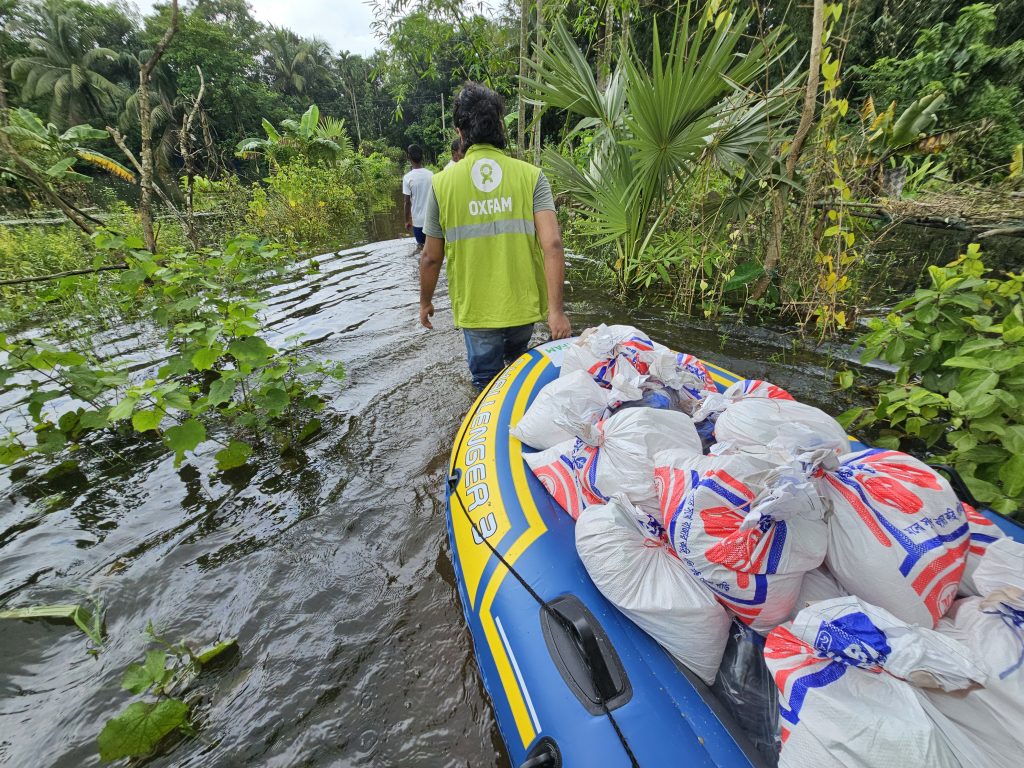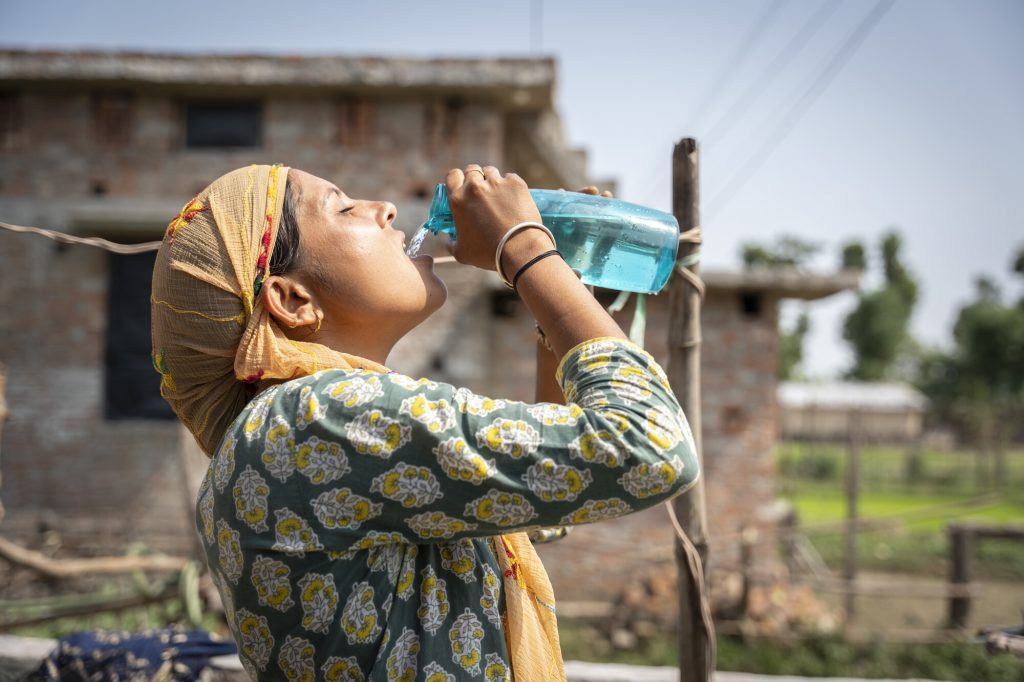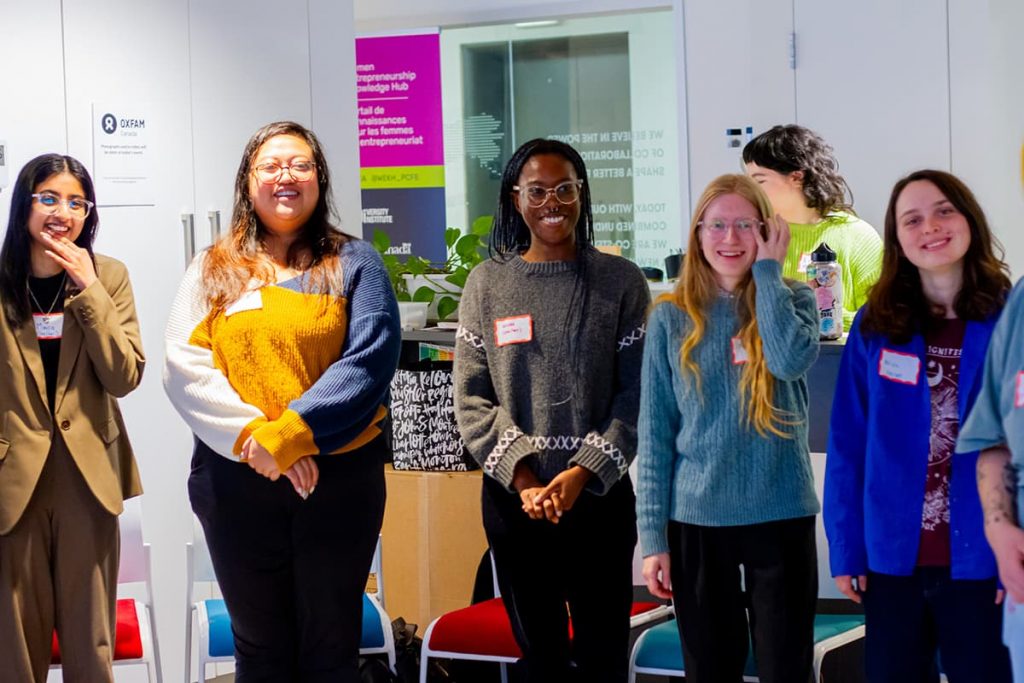Confronting Climate Inequality: How It Hurts Racialized Communities
As Canadians, many of us are aware that our planet is heating up. We’ve seen the effects close to home — wildfires, floods, and storms. You might remember the orange-tinted skies that blanketed entire cities during recent wildfire seasons, filling the air with smoke and disrupting daily life. For most of us, it was a temporary discomfort. But for many, these climate impacts are far more than an inconvenience — they’re a life-altering reality.
As much as we’ve been affected by these events in our backyards, racialized communities in particular feel the effects of the climate crisis, facing disproportionate exposure to climate risks. Suppose we did take a closer look at what is happening around us. We’d notice that racialized communities, who tend to reside in in urban, flood- prone and underserved rural areas, are often more exposed to flooding, heatwaves, and poor air quality. Indigenous communities, already affected by colonial displacement, are further impacted as climate change threatens traditional lands and cultural heritage, increasing the risk of loss and displacement. In Acadia First Nation, Yarmouth, Nova Scotia, residents for example face ongoing health risks due to a junkyard that has served as a dumping ground for car parts for decades, raising concerns about elevated cancer rates. One resident described the area as “a toxic legacy from decades of dumping,” highlighting anxieties over what this exposure means for the community’s health and future.
Unequal Burden: How the Climate Crisis Intensifies Global Inequities
The disproportionate exposure of racialized communities to environmental hazards is unfortunately a global phenomenon. The climate crisis is already a devastating, daily reality for millions worldwide. Over the past decade, extreme weather events have become more frequent and intense, impacting the world’s poorest communities most profoundly — many of whom are predominantly racialized. These communities are least responsible for emissions but have fewer resources to recover and invest in resilience and adaptation measures, such as home repairs or emergency planning. Just think about having to respond to a flood or a heatwave with very limited resources to fix your home or even plan for the next disaster- well, that is the reality that these communities face, struggling to survive a crisis that they, ironically, never created.
At Oxfam, we’re inspired by communities who nevertheless, fight daily to preserve their lands and livelihoods. This year alone, Oxfam is responding to several climate-induced crises in some of the world’s hardest-hit regions and countries, where these environmental shocks often intersect with other crises, intensifying their impact on affected communities.
- Southern Africa: The drought that began in early 2024 has hit crop production hard, leaving millions at risk of hunger. In Malawi, Zambia, Zimbabwe, and Mozambique — where 70% of farmers rely on rain to grow their crops — failed harvests and dried-up water sources are making it difficult for people to meet even their most basic needs
- Philippines: Storms and typhoons like Gaemi, Yagi, and Trami in 2024 have displaced hundreds of thousands, highlighting the brutal impact of more frequent and intense storms on an already disaster-prone country and straining relief resources
- Bangladesh: Rising sea levels and heavy monsoon rains are causing flooding that is forcing many people from their homes. Many communities are losing their access to clean water and farmland, making rebuilding difficult.

Oxfam teams are on the move, navigating flooded areas with supplies in tow to reach those in desperate need. Photo: Oxfam Bangladesh
How Oxfam is Responding: Emergency and Long-term Solutions
Oxfam’s work in climate-affected regions includes both immediate disaster response and long-term resilience building, with a strong focus on supporting women who are leading climate solutions
- Emergency Responses: In the face of disasters, we mobilize quickly with local partners to deliver essentials like food, clean water, and sanitation services. For example, in flood-affected areas, we set up water purification systems and distribute safe drinking water to reduce the risk of waterborne illnesses. Additionally, Oxfam provides emergency cash assistance to help families buy essentials, giving them some control and dignity in crises.
- Long-term Mitigation and Resilience: We need life-saving flexible funds but also investment in resilience from day 1 of the crisis. This is the only solution to save lives and, at the same time, strengthen the capacity of communities to bounce back and build resilience against future climate shocks. In regions vulnerable to drought, we support sustainable farming practices, help build rainwater harvesting systems, and promote alternative livelihoods. These efforts aim to reduce dependence on climate-affected resources and empower communities to adapt to changing conditions.
The Challenges We Face
Responding to climate-induced crises is challenging, not just due to their scale but also the complex realities on the ground. These crises often overlap — a drought can lead to food insecurity, which may, in turn, lead to displacement, putting strain on already limited resources. Worsening droughts across the Sahel region and East Africa have displaced millions. This “climate migration” disrupts entire communities and uproots families.
Climate emergencies don’t wait for funding or resources to be secured. They hit fast and demand swift responses. Despite leading responses, local humanitarian actors, including women’s organizations, are not receiving enough funds. Only 7% of the climate funds pledged at the Glasgow Climate Summit reached Indigenous communities within a year. Local organizations are invested in building the resilience of their communities and remain after the crisis has passed.
Again, the impacts of the climate crisis on racialized communities are often overlooked. These communities, both in Canada and globally, are crucial for addressing the climate emergency due to their traditional ecological knowledge of agriculture and biodiversity, which is essential for climate adaptation and mitigation.
In a world where the climate crisis is becoming an everyday reality, we need to pay closer attention not only to how racialized communities are affected in Canada but also how this has created unequal power balances and access to resources around the world.
Decolonizing Climate Action
Urgent action and investment are needed to address the issues that make people vulnerable in the first place, to help them cope with a changing climate and future shocks. Understanding the unequal impact of climate change is crucial to building a fair, effective response. Climate action must prioritize decolonization by empowering racialized communities and local actors – especially women – in decision-making and ensuring they receive the funding to build back better, disrupt colonial legacies, and reduce reliance on foreign aid. It’s time to shift the power dynamics and ensure those most impacted by climate change can create lasting solutions.
We need to recognize the impact of environmental racism in Canada and globally. This begins with supporting initiatives like Canada’s Environmental Racism Bill and holding major polluters and wealthier nations accountable—not only for their own emissions but also for their role in perpetuating environmental racism internationally.
It’s not enough to address the crisis in our own backyards; we must also support emergency response and resilience-building efforts where people are most affected.
Your support can help us respond swiftly to climate disasters, provide life-saving assistance, and invest in long-term resilience for the communities most impacted. Donate today to make a difference.

